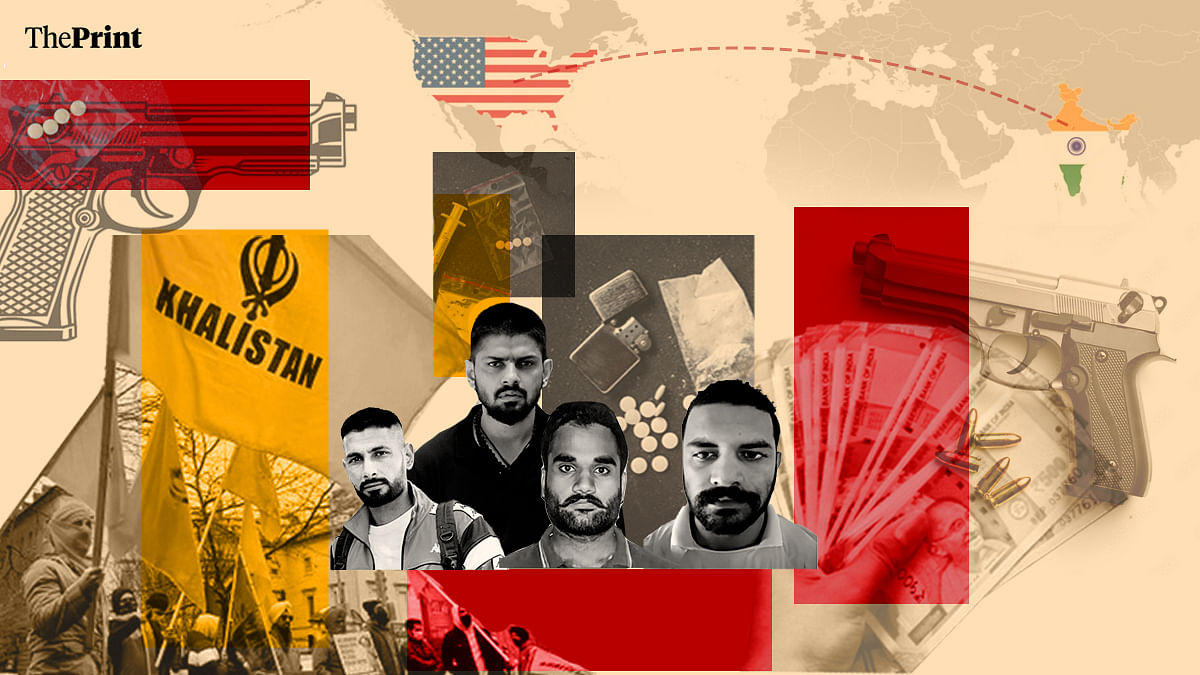Washington DC: Frozen french fries meant for hungry customers at a Wendy’s outlet lined the cavernous interiors of the semi-truck—of no particular interest to the border inspectors at first glance. The truck, however, had logged hundreds of kilometres over its scheduled route from Vancouver to Los Angeles, and the inspectors thought it warranted closer examination. Tucked away behind the fries, they discovered 120 kilograms of premium British Columbia cannabis, with an estimated street price of over $300,000.
Like Jashandeep Singh, the driver caught ferrying the ‘bud’ to Los Angeles back in 2003, ethnic-Punjabi criminal groups are recruiting hundreds of young asylum-seekers from India over 20 years later.
Ever since the arrest this week of organised crime boss Lawrence Bishnoi’s brother, Anmol Bishnoi, who is now being held at a prison in Pottawattamie, Iowa, investigators have been working to unpack a complex story involving the cross-border trafficking of migrants, narcotics cartels, assassins for hire and the Sikh separatist movement.
The Bishnoi gang—presumed to have murdered pro-Sikh separatist operative Hardeep Singh Nijjar in a hit allegedly organised by the Indian government—isn’t the largest, or most dangerous actor, though. The rival gang of Rajesh Kumar, known by the name “Sonu Khatri”, has brought in up to 100 migrants from villages around Punjab’s Nawanshahr to the United States, an Indian intelligence officer told ThePrint.
Earlier this year, the Punjab and Haryana High Court heard evidence that Rajesh’s gang members—nicknamed “Khatri key khiladi”, a wry pun invoking a similarly-named television series—had acquired dozens of fake passports using fictitious addresses in the town of Tohana in Haryana through a ring of middlemen and corrupt officials.
Growing numbers of ethnic-Punjabi migrants—many of them asylum-seekers working as truck drivers while their applications are processed—are being held on organised-crime-related charges. Gagandeep Singh, held in February, is charged with shipping 890 kilograms of cocaine, valued at $8.7 million, hidden in a cargo of agricultural equipment.
…
Economist Stephen Easton calculated in 2003 that a typical $100,000 investment in a cannabis-growing greenhouse offered an over 70 percent return, even allowing for the five percent chance of being caught by police. Low prosecution rates in British Columbia were a further incentive.
For emerging ethnic-Punjabi gangs, the cannabis trade offered enormous opportunities. Early on, the fact that ethnic-Punjabis knew berry farmers on either side of the border made it easy to walk consignments across. Embedded in the trucking business in both California and British Columbia, some in the community later proved willing to offer their services to the gangs to ship cannabis southwards and bring cocaine to the north.
The phenomenon soon spread to California, too, journalist Lisa Fernandez reported in 2008, with violent gangs like the Santa Clara Punjabi Boys, Aim to Kill, and the All Indian Mob drawing members from low-income new migrant families.
Less visible, though, was another critical linkage. Top gangsters like Raminder ‘Ron’ Dosanjh and his brother Jimsher ‘Jimmy’ Dosanjh were key figures in the Sikh separatist movement, leading the now-banned International Sikh Youth Federation. Gang leader Raminder ‘Mindy’ Bhandher lived with Sikh separatist and 1985 Air India bombing accused Ripudman Singh Malik—himself later assassinated in a 2022 contract-killing.
Evidence emerged from the trial of hitman Hardeep Uppal in 2003 that the Babbar Khalsa had paid $50,000 to gangsters Ravinder ‘Robbie’ Soomel and Daljit Basran for murdering anti-Sikh separatist journalist Tara Singh Hayer, a key witness in the Air India case.
Journalist Malcolm Gay reported in 2003 that funds from the drug trade and help from gang muscle were widely suspected to have helped pro-Sikh separatist leaders, like Jaswinder Singh Jandi and Jasjeet Singh Chela, capture control of the important Fremont Gurudwara in 1996. The two men owned the business which had hired Jashandeep, the driver involved in the 2003 French Fry case. Efforts to build a case had, however, collapsed after Jashandeep fled home to India while out on bail.


